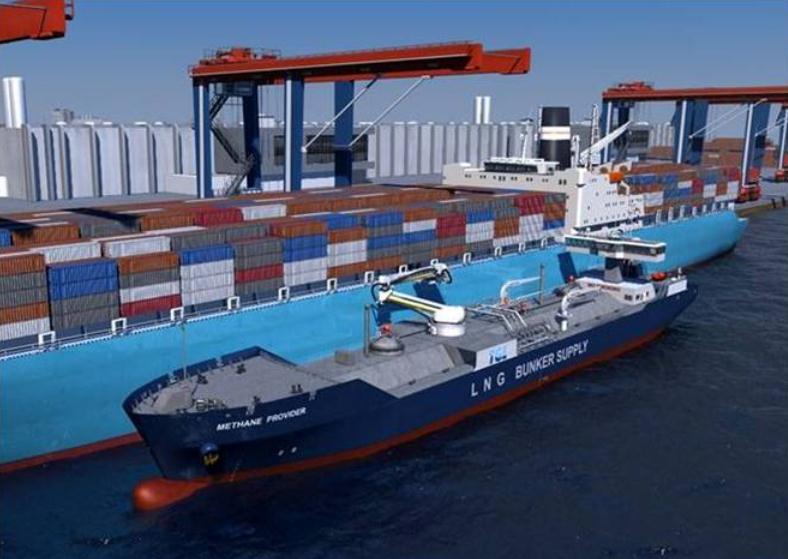ESPO Concerned about Obligation to Equip Core Ports with LNG Facilities
News:  RSS /
RSS /  Twitter /
Twitter /  Email
Email
SBTUSA: Gerald R. Ford Takes on Distinctive Profile of an Aircraft Carrier
NTUSS La Jolla Returns Home After Six-Month Deployment
SBTFESRC and FEFU Hold the Fleet of Russia Contest
NTTop News of the Week of Jan 21 – 26, 2013

Home
News by topic
Company News
Dredging News
Equipment News
Ferry & Cruise News
Fishery News
Naval News
Offshore News
Port News
Shipbuilding News
Shipping News
Super Yachting News
Workboat News
Regional news
Africa
Americas
Asia Pacific
Europe & Eurasia
Middle East
South & Central Asia
Events
About
Contact
Newsletter

The Commission yesterday launched the so-called ‘Clean Fuel for Transport Package’. This consist of a Communication on a European alternative fuels strategy and a proposed Directive on the deployment of alternative fuels infrastructure.
An accompanying document describes the action plan for the development of LNG in shipping. The package addresses all transport modes and its overall aim is to diminish Europe’s dependency on oil for its mobility and transport.
For maritime transport, the legislative package focuses on the development of Liquified Natural Gas (LNG) infrastructure and the promotion of shore side electricity for vessels at berth.
Within the proposed Directive, the Commission introduces an obligation for TEN-T core seaports to be equipped by 2020 with publicly accessible LNG refueling points for both maritime and inland waterway transport. A similar obligation is introduced for core inland ports by 2025. In addition, the Commission introduces a more generic requirement for ports to be equipped with shore side electricity installations for waterborne vessels, provided this would be cost-effective and effectively lead to environmental benefits.
ESPO supports the development of LNG as a viable and green alternative fuel for ships and acknowledges that shore side electricity for vessels at berth is one of the potential solutions to address local air quality challenges in ports. ESPO therefore welcomes the fact that funding would be made available through the TEN-T calls for the further development of such projects.
ESPO however doubts whether imposing LNG refueling infrastructure in all TEN-T core ports would be appropriate, since there may not be a market for it in all of those ports, whereas there could be a market in other, non-core ports. “We believe that LNG refueling points should be developed in those ports where this actually makes sense”, said ESPO Secretary General Patrick Verhoeven, “We are concerned that imposing the development of EU co-funded LNG infrastructure in all core ports may in certain cases lead to the development of largely unused or underused facilities.”
In addition, ESPO considers that alternative solutions to the development of LNG and shore side electricity are and will become increasingly available in the near future. While fully supporting the aim of improving the environmental performance of maritime transport, ESPO believes that there are not ‘silver bullet’ type of solutions and that, therefore, a closer examination of the actual needs of individual ports is necessary.
HEADLINES
- Do shipping markets want Biden or Trump for the win?
- All 18 crew safe after fire on Japanese-owned tanker off Singapore
- Singapore launching $44m co-investment initiative for maritime tech start-ups
- Cosco debuts Global Shipping Industry Chain Cooperation Initiative
- US warns of more shipping sanctions
- China continues seaport consolidation as Dalian offer goes unconditional